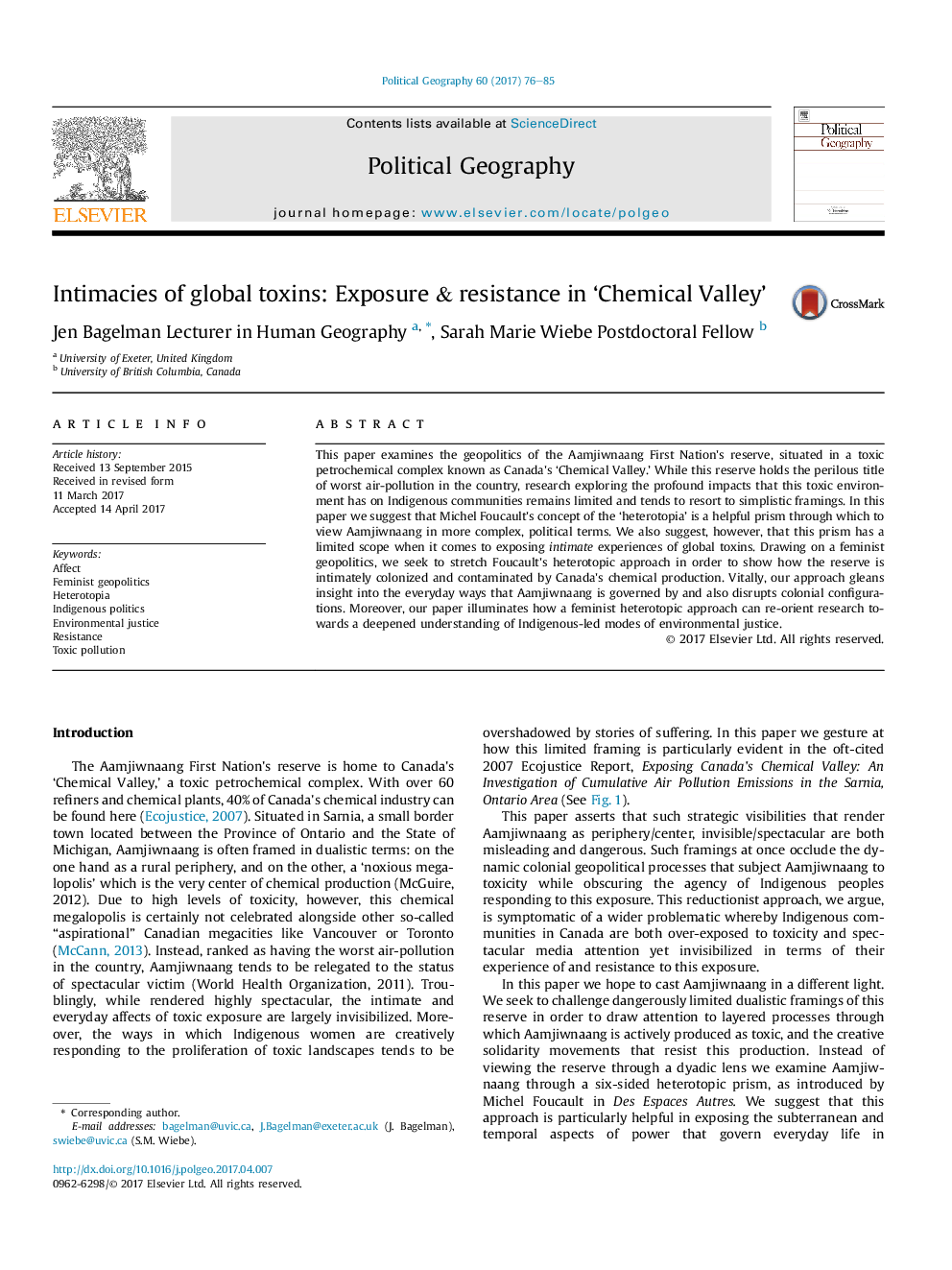| Article ID | Journal | Published Year | Pages | File Type |
|---|---|---|---|---|
| 5118512 | Political Geography | 2017 | 10 Pages |
Abstract
This paper examines the geopolitics of the Aamjiwnaang First Nation's reserve, situated in a toxic petrochemical complex known as Canada's 'Chemical Valley.' While this reserve holds the perilous title of worst air-pollution in the country, research exploring the profound impacts that this toxic environment has on Indigenous communities remains limited and tends to resort to simplistic framings. In this paper we suggest that Michel Foucault's concept of the 'heterotopia' is a helpful prism through which to view Aamjiwnaang in more complex, political terms. We also suggest, however, that this prism has a limited scope when it comes to exposing intimate experiences of global toxins. Drawing on a feminist geopolitics, we seek to stretch Foucault's heterotopic approach in order to show how the reserve is intimately colonized and contaminated by Canada's chemical production. Vitally, our approach gleans insight into the everyday ways that Aamjiwnaang is governed by and also disrupts colonial configurations. Moreover, our paper illuminates how a feminist heterotopic approach can re-orient research towards a deepened understanding of Indigenous-led modes of environmental justice.
Related Topics
Social Sciences and Humanities
Arts and Humanities
History
Authors
Jen (Lecturer in Human Geography), Sarah Marie (Postdoctoral Fellow),
